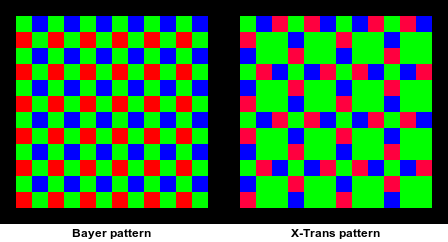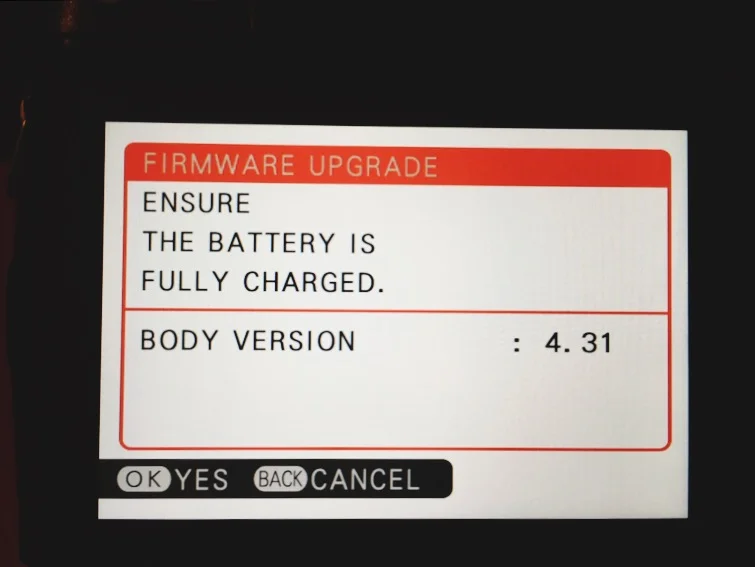Why I Shoot Fujifilm
1. Introduction
Nowadays, you can get a great camera from just about any camera manufacturer. Photographers really are spoiled for choice when it comes to picking a camera system. So, when it came time for me to choose a camera system, I chose Fujifilm. This blog post is an explanation as to why.
2.Image Quality
The first thing I considered when deciding what camera brand to choose, was image quality. If the image quality isn't there, it doesn't matter the quality of the rest of the camera system.
One of the things I kept noticing, when I would watch review videos for the Fujifilm system or read blog post about the Fujifilm system, was the image quality. I wouldn't say it's necessarily better than other camera brands, but there is something unique about it. It's hard to put into words, but it has and organic feel to the images. I know, I know, how can something be organic if it's digital? However, Fujifilm cameras tend to deliver just that, and with all of the sharpness and detail of any of the other major camera brands.
I think it has to do with the unique way the Fujifilm sensors are laid out. I don't pretend to understand any of it, but my understanding is that every other camera sensor has something called a Bayer Sensor layout. The Fujifilm cameras have the X-Trans layout which is more randomized and is supposed to be more like actual film. I have no idea if any of this is true or just marketing stuff, but I do think the images have a unique quality to them.
3. Those Lenses
Cameras are only one half of the equation when it comes to picking a camera system, and not the important half. Lenses are the most important factor, in my opinion, when choosing a camera system.
Fortunately, Fujifilm has got the goods want to comes to glass. Every single necessary focal length is covered by the Fujifilm system at this point. The lineup isn't it as extensive as Canon or Nikon, but every single lens is phenomenal.
The nice thing about the Fujifilm lens lineup is that you just need to figure out what focal length you want and buy the lens Fujifilm makes in that focal length. There is no additional research you need to do. Every lens in the Fujifilm lineup is magnificent.
The lenses are also very reasonably priced for how well they perform. For example, the Canon 70-200 f2.8 is right around $2,000 where the Fujifilm equivalent is $1,600. The canon 85mm 1.2 is right around $1,900 and the Fujifilm lens is $1,000. Also both of these lenses regularly go on sale for significantly less than these retail prices. $1,000 is a lot for a metal tube with pieces of glass in it, but considering what you get for that price, it's still a bargain.
4. Size and Weight
One of the big positive points for mirrorless cameras in general is the size and weight, or lack thereof. Mirrorless cameras pack big performance into a small package. The Fujifilm cameras are no different. In my small camera bag, I can fit and an APSC sensor camera, and lenses covering focal lengths as wide as 18 mm all the way through to 300 mm (full frame equivalent).
You'd probably have a tough time doing that with a traditional DSLR, and, even if you could, you probably wouldn't want to lug it around with you. That's one of the best things about the Fujifilm system. There's never a time when I can't take my best camera with me. That means I never have to settle for my smartphone camera; I always have a big sensor camera with a great lens.
5. Those Looks
Go ahead, Say it. Call me a hipster. Call me a poser. A beard wearing, fixie riding, kombucha swilling douche. That's fine. I know there is a commonly held belief that a camera is just a tool, and no one cares about how a tool looks so long as it does it's job, right?
Well, the better looking at camera is, the more likely you are to take it with you. The more likely you are to take it with you, the more pictures you're going to shoot. The more pictures you shoot, the better you get at photography. The better you get at photography, the better your images are, and after all, isn't that the whole point?
Obviously a good looking camera isn't going to be the decisive factor in how good you get at photography, but it can't possibly hurt. That brings me to another point about the looks.
A camera is a tool to produce photography and it doesn't matter how it looks, but why can't they do their job and look good. I place function higher than form, but if you can have both, why not? Why shouldn't a camera be both function and look pleasant? The Fujifilm cameras strike a wonderful balance between form and function that is difficult to find elsewhere.
6. Kaizen is a Thing
Most camera companies build a new camera (and expect you to buy a new camera) every single year. Any updates the company is working on usually go into next year's model and the user is left wondering if they should upgrade or stick it out with outdated tech.
Fujifilm have decided to ease this process with something called Kaizen. Kaizen is a Japanese philosophy that means "constant improvement". What it means for the Fujifilm cameras is that, occasionally, Fujifilm will randomly give you a brand new camera.
I'll give you an example. Nearly 3 years after the Fujifilm XE-2 came out, Fujifilm gave users a firmware update that improved the focusing system and added a new film simulation. This basically made the XE-2 a brand new camera with similar features to their (at the time) flagship camera, the XT-1. I can't think of any other camera company that comes close to rewarding their customers as much as Fujifilm does.
7. Conclusion
I meant what I said earlier, it really is a great time to be a photographer. There are better cameras available now than ever before for cheaper than ever before. This article is not meant to say that Fujifilm cameras are the best, just that they work best for how I shoot. Fujifilm cameras are great to throw in your bag or backpack and take with you on a daily basis to have an amazing camera with amazing image quality with you always.










